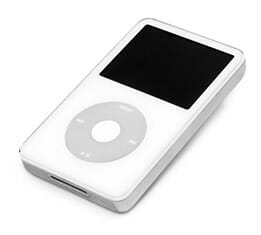Vacations are usually a time to relax and take a break from your normal routine. Unfortunately, it is this change that can ruin an otherwise great trip if you’re struggling with bipolar disorder.
For some, even getting ready for a trip is enough to trigger their bipolar symptoms. When this is combined with the added stress that comes with traveling and the change in daily routine, is it even worth it to go?
This doesn’t mean that you can’t successfully travel if you are bipolar. You just need to take a few extra steps.
Travel Tips for Managing Bipolar
Being bipolar means that having a routine is a must. One tiny deviation can be enough to trigger depression or mania symptoms. Simply leaving your home for a few days is already a major upset to your daily routine, and that is just the start.
There are ways you can manage your illness, and it begins with knowing what your triggers are. The most common are time changes, being around people for extended periods of time, and loss of sleep.
You will probably have to deal with at least one, if not all, on your trip.
According to author Julie A. Fast of “Take Charge of Bipolar Disorder and Loving Someone with Bipolar Disorder” there are proactive steps you can take to minimize and even prevent the re-occurrence of your symptoms.
5 Tips to Manage Symptoms on Vacation
- Sleep is Crucial
The most common bipolar disorder trigger is a lack of sleep. You are already exhausted from the constant battle with the illness. It is also a common side effect of bipolar medications.
Getting enough rest is also one of the hardest things to do when you’re on a trip.
If you’re visiting friends or family consider staying in a hotel. You’ll have a quiet place to go when the commotion becomes overwhelming.
Changes in time zones can also disrupt sleep so try slowly adjusting your patterns before you go by changing your routine to mimic the time of day at your destination. Do this very gradually so that you don’t shock your body.
Over-the-counter sleep aids might also be able to help, but only with the approval of your physician. The last thing you want is for there to be an adverse reaction to your medications away from home.
- Pack Extra Medication
Always pack extra medication anytime you travel. It should also be divided and kept in separate bags. This way if one is lost, you still have a backup to get you through the trip.
It also ensures that you’re covered if the trip is unexpectedly extended.
- Have Help
If you’re traveling with friends or family, let at least one know that you are bipolar. They can act as intermediaries between you and a tense situation.
Whether it is covering for you when a break is desperately needed or helping you stay calm, their support can help you keep your symptoms under control.
- Plan the Trip Around the Bipolar Disorder
Trying to save money on early or red-eye flights isn’t worth it. The stress of the odd times and lack of sleep, are two stressors that commonly trigger bipolar symptoms.
Avoiding connecting flights is best. But if you do have to change planes, choose a long layover or a shorter one. It might be boring, but also less stressful.
You can also use the time to practice your relaxation techniques like breathing exercises. Sometimes being able to take a few minutes to decompress, before continuing the trip, is enough to prevent an episode.

- Pack “Comfort” Items
It is important to think about the time it takes to get to your destination. What will you do to keep bipolar disorder symptoms at bay?
Downloading music, podcasts and movies will help pass the time. It will also keep your mind busy and off the stress of traveling.
Don’t forget to stay hydrated and nourished. Bring a favorite healthy snack to keep your waning energy levels up.
Some frequent travelers take melatonin to prevent jet lag. This is not recommended if you are bipolar, especially since it is not known how it might interact with your prescribed medications. Always speak with your primary mental health care provider before adding any new medications to your treatment plan.
Enjoying a Vacation with Bipolar
Be flexible. Even the best planned vacation will encounter a few bumps. Focus on yourself and take a break when you need to. Just because you’re on vacation, doesn’t mean that your bipolar disorder is too.
Sometimes making time for exercise can calm racing thoughts, and get rid of restless energy, irritability, and agitation.
When things do become overwhelming, take a minute to breathe. Slow, deep breathes will help calm anxiety, at least for bit. If your bipolar disorder becomes unmanageable, don’t be ashamed to ask for help. Even if it means cutting your vacation short.

Bipolar Disorder and Vacation Recovery
The time after a vacation can be extremely difficult. Exhaustion, days spent keeping emotions in check and dealing with stressful situations have taken a toll.
This leaves you ill-equipped to deal with bipolar disorder.
Episodes of mania can happen, but for most it is the crushing weight of bipolar depression. The best method of recovery from a vacation is to get back into a normal routine.
- Go to bed at the same time, even if you can’t sleep. Reestablishing a routine is the first step.
- Take all medications exactly as prescribed.
- Don’t be afraid to say “no” to invitations from family and friends.
- Use all your coping skills as many times as needed to get through the day.
The worst part about recovering from a vacation when you have bipolar disorder is not knowing how long it will take. Will it only be a few days or drag endlessly on for a month? There’s no way to know.

Take a Trip Even if You’re Bipolar
Your illness shouldn’t stop you from taking a trip. But it does need to be the first thing you think about. From the initial planning to packing, traveling and returning home, your bipolar disorder will play a key role in every decision that is made.1
Even if every possible scenario is thought of, something can still go wrong. It doesn’t have to ruin the trip. Stay as calm as possible, when you can. Also, remove yourself from a situation that is causing too much stress.
Don’t expect perfection, and you can have an enjoyable and exhausting vacation even with your bipolar disorder in the background.
As always, ask for help or contact your physician if things are more than you can handle. Your health and safety are more important than any trip.
References:
1https://psychcentral.com/blog/12-travel-tips-for-people-with-bipolar-disorder/
 Medically reviewed by
Medically reviewed by
5 Comments
My wife has planned a February trip to Disney with the kids and grandkids which I know will be stressful and full of things to do all the time. I would be happy to stay home and take care of things here with the cats and job. She has already booked the trip so I feel like I’m expected to be part of it. Ugghh.
Thanks for the advice on how to somewhat manage my bipolar symptoms. I’ll use them.
Excellent article! I suffer from each bi-polar vacation symptom and I don’t like to travel very far from home. I haven’t spent more two nights away from home since before my on set of bi-polar and I wasn’t aware that it is a direct result of bi-polar disorder. Thanks for the tips on how to deal with symptoms!.
I can’t seem to subscribe and i really want to. Please help
You’re already subscribed. Thank you
Great article. One thing I keep in mind is: Why travel at all? What’s the point, I ask myself. There isn’t one. I don’t like to travel. I’ve done a fair amount of traveling in my life, but it was never my idea. Now I live alone, have a committed relationship, and he loves to travel. So I suggested a day trip. His car is too old, so I would rent a car on my dime. The two times we rented a car, there were all sorts of problems with the car — we are not techies, and things were just too hard to figure out. And that was just one of the many traumas and travails the ensued when we traveled together. So this time, I think I got grandiose: From a day trip to the beach, is morphed into getting tide tables, coordinating with Minus Tides and finding beaches with good tide pooling. From there is morphed into an overnight stay, then two nights. A couple of hours ago, we talked on the phone about going to the sporting goods store to get tide tables and talk to the store folks about where to go tide pooling. The more we talked on the phone, the more agitated and upset I got. I finally called him back and said — for the hundredth time, will I never learn? — that I hate traveling and I’m not going to the beach at all. I suggested that each of us find other people to do the things we like to do that the other person does not enjoy.